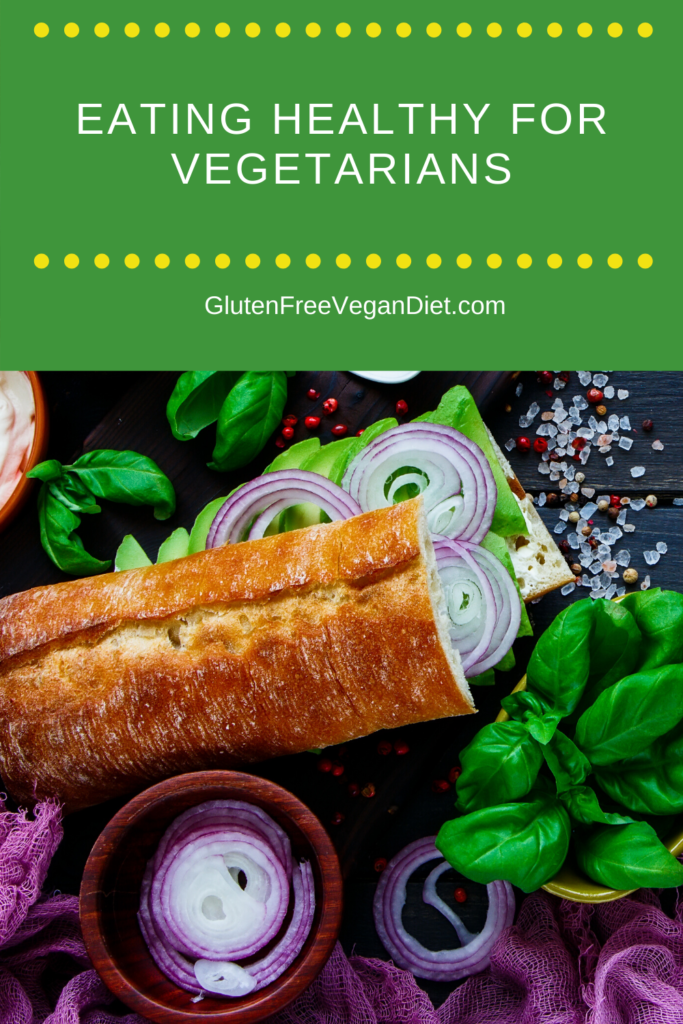Eating healthy is important and eating healthy for vegetarians(and Vegan) is even more important.
The vegetarians way of life can be a very healthy way to eat and the rules still apply as with any healthy eating plan, and you should strive for variety, balance, and moderation. What is a vegetarian? A vegetarian is someone who does not eat meat.
Whether it is hamburgers, hotdogs, chicken, or even fish, Vegetarians are often classified by the type of food will, or wont’, eat. For example, vegetarians who avoid animal flesh but willingly eat eggs and most dairy products are called Lacto-ovo vegetarians.
A Vegan on the other hand, will avoid all food that has any trace of animal origin. Basically anything that comes from something that had a mother or a face, they won’t eat.

Many people believe that because vegan/vegetarians don’t eat meat, they won’t get enough protein. Truth is, the average American actually consumes more protein than is actually needed so by eating less meat (or none at all) Vegans/Vegetarians are fine.
Dairy products are a great source of protein for those who don’t eat meat but consider themselves lacto-ovo vegetarian.
Vegans on the other hand, get their protein from vegetables, nuts, seeds, and soy products. When it comes to beans for protein, there are many varieties of beans to choose from, including things like green or red lentils, peanuts, split peas, pinto, soy beans, kidney beans, and many more.
It’s possible you are already very familiar with many of these beans like kidney beans in chili, refried beans in Mexican dishes, red beans and rice, and pinto beans.
Although most beans are tasty as they are, there are actually other beans available with different flavors which helps enhance their taste. The wide variety of nuts are actually high in protein, they just tent to have more fat than beans so nuts should be enjoyed in moderation.
Did you know that by simple consuming one cup of cooked beans, you’ll get the same amount of protein as eating two ounces of meat? So the truth is, you can still get plenty of protein without consuming meat products.

Many Vegans might be concerned about the nutrients of their diet since they avoid all animal products. Nutrients like: vitamin B12, calcium, and vitamin D. Just because one doesn’t eat meat or drink milk doesn’t meant they lack much needed nutrients.
For example, in the average North American diet, the primary source of B12 is animal products. For vegans to get an adequate intake of B12, they should be taking a vitamin B12 supplement regularly or finding ways to get enough through food products like soy or milk (if not avoiding dairy that is)
I personally don’t drink milk, and I avoid all soy so I make sure I get a good B12 supplement daily.
For calcium needs, vegans can rely on foods and drinks such as orange juice or soy milk, since these are fortified with calcium. Believe it or not, beans and leafy green vegetables will also contain some calcium as well.

Basically, Vegan’s and vegetarians can rely on different food choices to control and optimize their intake of vitamins, calcium, and other nutrients.
As with any other eating plan, supplements are needed as most of today’s food is missing a lot of nutrients already. No matter what eating plan you choose, it’s important to know what you eat, understand what nutrients your food provides, and supplement where needed.
You can always consult a nutritionist if you aren’t clear on how to optimize your diet. If you’ve enjoyed this article in some way, leave us a comment below. You can contact me if you have questions.

